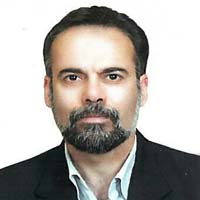The study of Speech Poem in Iran (based on the works of Arash Azarpik)
»Speech Poem« in contemporary lyric poetry is one of those successful post-Simini poets. Poem lyric has been innovative in terms of content and form in contemporary literature and has gained its special place. With the of the form of sonnet and natural declamation, ie the language of speech, poem lyric has had great success in bringing the language of sonnet closer to the natural declemsion of language without slipping into the abyss of slang and colloquial writing.
This type of sonnet has been created under the influence of Simin Behbahani’s narrative sonnet, by giving originality to dialogue and dialogue-oriented poetry both in terms of language and in terms of content instead of using repetitive and burning themes and romantic-mystical melodies, has made pure images of his thought and human-social self the main theme of his sonnet And through this, she has reached synergy, poetry (lyric form) and story
. Considering that Azarpik’s knows the essential elements of the word, by directly communicating with them, And to try to show new methods in lyric poetry, he tries to present eloquent innovations and original images in his poems. In this article, by reviewing the two collections »Miss Returns to Love« and »Leila Zana« the characteristics of speech poetry will be examined. And it will be compared with speech poetry. The result of the investigation show that dialougs in the poems has shaoed the natural delamation of the language without breaking words, Abbreviation, complex composition, the absence of literary industries.
-
Investigating the mystical positions "Sabr" and "Reza" in four works Dastour al-Juhumor, Awarif al-Maarif, Manazel Al-Saerin, and Al-Sawad and Al-Bayaz, relying on Gerard Genet's intertextuality
Elham Ghanavatimohammadghasemi, Ahmad Khiyali Khatibi *, Ali Asghar Halabi
Journal of Literary Criticism Studies, -
Analyzing the intertextual relations between the houses of the walkers and the book of whiteness and blackness based on Gerard Genet's theory
Elham Ghanavatimohammadghasemi, Ahmad Khiyali Khatibi *, Aliasghar Halabi
Journal of Contemporary Literature,


